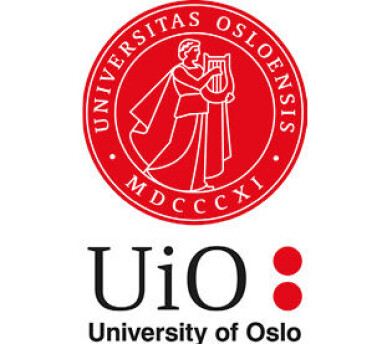THIS CONTENT IS BROUGHT TO YOU BY University of Oslo - read more

Call for action to tackle global antibiotic shortages
Antibiotic shortages disrupt patient care, increase treatment costs, reduce effectiveness, and contribute to the rise of antibiotic resistance globally.
Researchers at the University of Oslo have highlighted how antibiotic shortages have evolved from localised and isolated issues to a global crisis in a commentary article in Nature. They now urge a global reassessment of the supply chain resilience and regulatory effectiveness.
“Strategies to specifically address antibiotic shortages remain underexplored,” researcher Belma Skender argues.
Their article provides a historical overview of the issue from the 1970s to today.

They show how market dynamics and financial priorities have shaped pharmaceutical research, production, and value, as well as where they are produced.
The researchers explain that recent antibiotic shortages in high-income countries have multiple causes. These include economic, logistical, and regulatory factors in the pharmaceutical industry, which has undergone significant and systematic changes in the past decades.
Outsourced manufacturing
The researchers emphasise that antibiotic shortages are a long-standing issue, affecting even well-established pharmaceutical industries, thriving economies, and robust health systems.
“Pharmaceutical shortages are often mistakenly associated with lower- and middle-income countries. Such misconceptions can potentially underestimate the severity of antibiotic shortages worldwide,” Skender explains.
The article further highlights that Europe and the USA, once pioneers in antibiotic research and production, are just as vulnerable to supply chain weaknesses, political tensions, and trade disputes.
The researchers explain that during the 1990s, a growing number of pharmaceutical firms outsourced their activities to local firms and institutes in emerging economies like India and China.
"A critical vulnerability in the antibiotics supply chain is the global dependence on a limited number of manufacturers for the mass production of antibiotic ingredients,” researcher Mingyuan Zhang argues.
This weakness became even clearer during the Covid-19 pandemic. A sudden demand for certain antibiotics, lockdowns, and shipping delays disrupted global supply chains.

“The dependence on a single or few manufacturers of antibiotics has been a key cause of antibiotic supply shortages long before the pandemic. Covid-19, however, underscored the imperative for more diversified and robust manufacturing capacities,” Zhang explains.
Decline in innovation
Outsourcing is not the only problem. The researchers also point to declining innovation in antibiotic development and an overreliance on market mechanisms to control drug inventory.
“Since the late 1970s, fewer new antibiotics have been developed due to high costs, long development times, and strict regulations. There has also been a general lack of structured systems to monitor the supply of pharmaceuticals,” Skender says.
The shortage of effective antibiotics has made treating drug-resistant infections increasingly difficult. Broad-spectrum antibiotics and injectable drugs are the most affected.
A 2010 survey of 38 countries, including Europe, the USA, Canada, and Australia, found that many potentially useful, low-cost generic antibiotics were not available in these countries.
“It is difficult to manage infectious diseases when first-line antibiotics are unavailable, necessitating flexibility in treatment approaches and reliance on less preferred, less effective, more toxic, and more expensive options,” Zhang emphasises.
The need for urgent action
To address these shortages, Skender and Zhang stress the need for robust systems to ensure essential medicines remain available.
“The situation calls for a global reassessment of the supply chain resilience and regulatory effectiveness of traditional antibiotics," Skender advocates.
The researchers believe that addressing this crisis is crucial not just for treating infections but for advancing global health security and equity.
Reference:
Skender, B. & Zhang, M. From local issue to global challenge: a brief overview of antibiotic shortages since the 1970s, Humanities and Social Sciences Communications, vol. 11, 2024. DOI: 10.1057/s41599-024-03759-y

This content is paid for and presented by the University of Oslo
This content is created by the University of Oslo's communication staff, who use this platform to communicate science and share results from research with the public. The University of Oslo is one of more than 80 owners of ScienceNorway.no. Read more here.
More content from the University of Oslo:
-
Mainland Europe’s largest glacier may be halved by 2100
-
AI makes fake news more credible
-
What do our brains learn from surprises?
-
"A photograph is not automatically either true or false. It's a rhetorical device"
-
Queer opera singers: “I was too feminine, too ‘gay.’ I heard that on opera stages in both Asia and Europe”
-
Putin’s dream of the perfect family




































